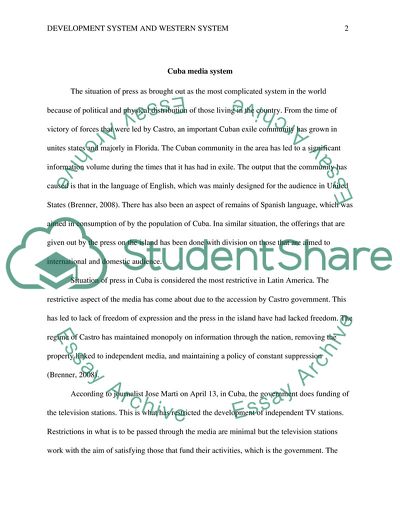Cite this document
(Comparison between Cuba Media System and Western System Literature review Example | Topics and Well Written Essays - 3000 words, n.d.)
Comparison between Cuba Media System and Western System Literature review Example | Topics and Well Written Essays - 3000 words. https://studentshare.org/media/1874518-comparing-contrasting-cuba-media-system-developmental-system-to-usa-western-system
Comparison between Cuba Media System and Western System Literature review Example | Topics and Well Written Essays - 3000 words. https://studentshare.org/media/1874518-comparing-contrasting-cuba-media-system-developmental-system-to-usa-western-system
(Comparison Between Cuba Media System and Western System Literature Review Example | Topics and Well Written Essays - 3000 Words)
Comparison Between Cuba Media System and Western System Literature Review Example | Topics and Well Written Essays - 3000 Words. https://studentshare.org/media/1874518-comparing-contrasting-cuba-media-system-developmental-system-to-usa-western-system.
Comparison Between Cuba Media System and Western System Literature Review Example | Topics and Well Written Essays - 3000 Words. https://studentshare.org/media/1874518-comparing-contrasting-cuba-media-system-developmental-system-to-usa-western-system.
“Comparison Between Cuba Media System and Western System Literature Review Example | Topics and Well Written Essays - 3000 Words”. https://studentshare.org/media/1874518-comparing-contrasting-cuba-media-system-developmental-system-to-usa-western-system.


